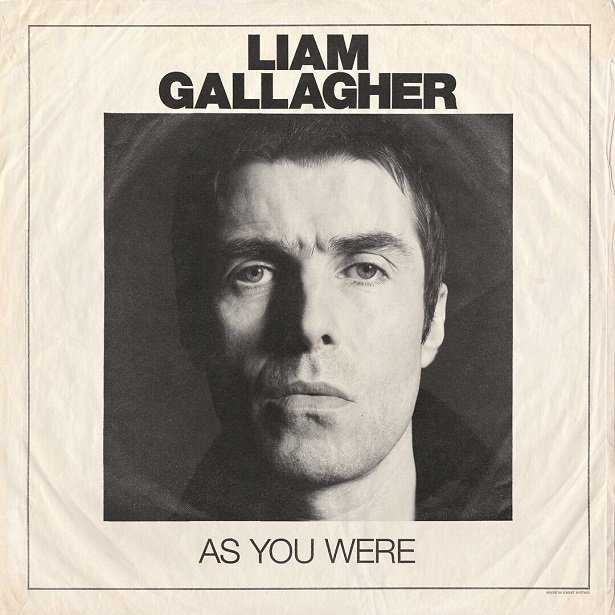The aftermath of Oasis’ split resulting from increasing tensions between the perennially sparring Gallagher brothers Liam and Noel has no doubt been kinder to the latter.
Noel’s critically and commercially acclaimed solo albums stand in stark contrast to younger brother Liam’s intermittent flashes of brilliance with Beady Eye, despite concerted efforts on their last studio recording to experiment with a sound away from the tried and tested methods of Oasis’ sixties rock and roll template.
Despite previous claims against putting out music in a solo capacity, life out of the limelight began to grate on a man lauded as one of the greatest rock vocalists of the nineties. A series of goading tweets aimed at his brother, a well-received, lurching debut solo single in Wall Of Glass and a heart-warming, surprise appearance at the One Love Manchester concert signified he had emerged from the shadows in customarily emphatic fashion.
Representative of a dying breed of provocative rock and roll icons from the Britpop era who haven’t yet been adequately replaced, there is something altogether refreshing about Liam’s resurgence within a contemporary music scene steadily shifting away from British rock roots evolved over several decades as part of the island’s cultural identity.
Acquiring the help of esteemed songwriter and producer Greg Kurstin (Beck, Tegan and Sara, Foo Fighters) to add creative and technical flair to an undoubted vocal prevalence, there is a notable bridging of the gap on much of a record where both lyrical astuteness and biting vocals meet with enticing effect.
Liam-penned Bold begins as a straightforward three-chord chugging guitar track, singing of a romance being futilely chased before an arresting bridge shifts the song out of its comfort zone and down a side street of Ian Brown-esque cries of, “Lay it on me, yeah” to the backing of an increasing cacophony of lead guitar and orchestral synths for a rousing conclusion.
Any concerns surrounding Liam’s penchant for straight up rock and roll swagger are dispersed on the stomping Greedy Soul. Much of the lyrical content here points to the fallout from a dissolved relationship played out in the tabloid glare, particularly in the lines, “They’re digging me for gold, well if the truth be told, you got your kiss and tell, I hope you go to hell”. This is Liam at his feisty peak, working his way through demons the only way he knows how.
While the cathartic bombast is a definitive aspect of Liam’s enduring appeal with his fanbase, there are softer moments on the album portraying a rarely seen sensitive side which endearingly conflicts with the well-documented public persona. Paper Crown encompasses a stripped back acoustic ballad highlighting the positive impact of cleaner living on Liam’s voice as he sings of insecurity of a past lover being left to ponder a lonely existence, stemming from a drastic fall from grace due to the treatment of others.
Occasionally maligned for over reliance on The Beatles’ template when crafting songs over the years, the Lennon-inspired single For What It’s Worth still emerges as a credible mid-tempo reflection on past mistakes. If an artist is to draw on past examples for musical output it may as well be some of the greatest examples the world has seen, and this is reaffirmed in a track containing genuinely witty tongue-in-cheek lyrical assertions such as, “Behind the lens is a poison picture you paint, and let’s not pretend you were ever searching for saints”.
The latter stages of the album see the guitar amp volume setting being turned back up a notch with the near-grunge enthused I Get By and arguably the most Oasis aping track on the record in Come Back to Me, complete with a screeching distorted guitar solo and soaring chorus.
Bookending these heavier songs are captivating showcases of an increasingly melodious side to Liam’s songcraft which has been hard to come by in his post-Oasis work. The glorious, far-eastern tinged acoustic plucking of Chinatown contains varied vocal inflections, weaving seamlessly through a philosophical tale of what it means to be free and happy in a world seemingly always on the brink of self-destruction.
Universal Gleam continues the metaphysical themes, where Liam speaks of fixing broken dreams and how his older self will make fewer mistakes as the gospel outro of love and light brings a wonderfully pondering song to a close.
Even with middle-age rapidly approaching, As You Were offers convincing evidence that Liam isn’t about to give in to a world of numbing daytime television anytime soon, producing a varied and mature collection of tracks tackling the timely topics of morality and ruefulness with one eye on renewed hope for the future.




